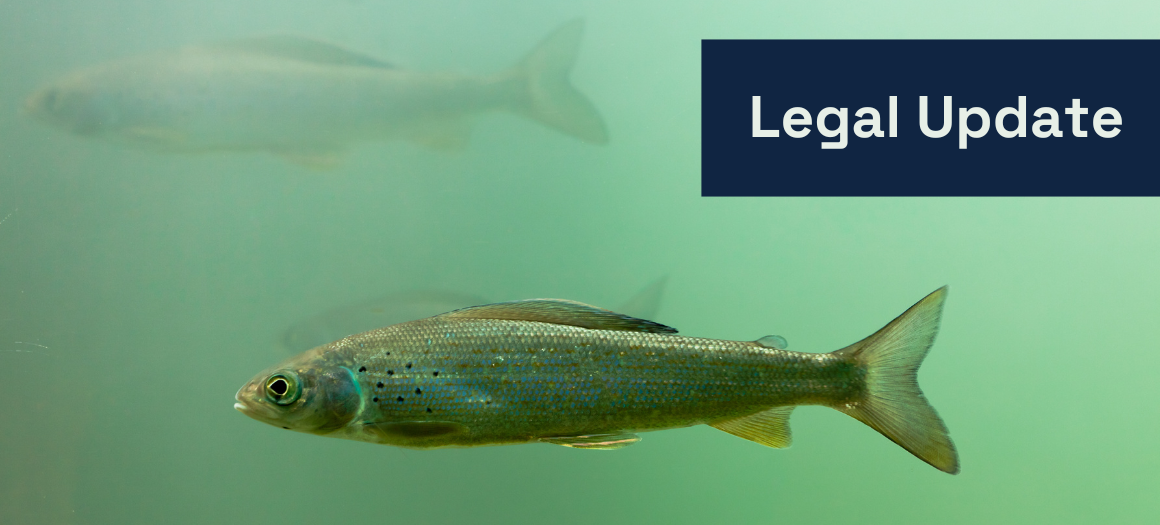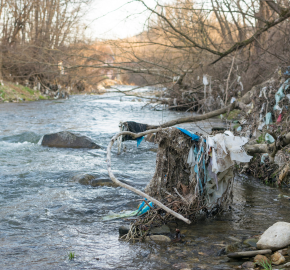An update from the WildFish legal team

Here is what our legal team have been working on in November and what’s coming up soon.
An update on Pesticides
We are celebrating a decision by the Information Commissioner (ICO) about the refusal of the Health and Safety Executive (HSE) to disclose farmers’ pesticide use records (where? when? what? how much?).
The ICO Decision followed a request for information WildFish made following SmartRivers work, conducted by our brilliant volunteer citizen scientists, that showed a particular ‘chemical fingerprint’ in damage caused to a Welsh Dee tributary. We wanted to know whether any particular pesticides were being used in the catchment that might explain the damage SmartRivers was picking up.
The HSE had previously denied that farmers’ pesticide use records were subject to requests made under freedom of information law.
However, the ICO has now agreed with WildFish lawyers that the records are “held on behalf of” HSE by farmers.
We are waiting to see if the HSE will appeal, which it must do before Christmas. If the HSE does appeal, that would probably be heard sometime in the first half of 2025. Still, we hope HSE will recognise that the general public should have a right to know what pesticides are used, on what land, and in what quantities – particularly where those pesticides end up being washed into streams lakes and rivers where they affect aquatic ecosystems.
Salmon farming and ‘greenwashing’
As we write this update, we have just two days to the hearing of our appeal against the decision by Defra to allow the Scottish salmon farming industry to change the Protected Geographical Indication name for its products from “Scottish farmed salmon” to just “Scottish salmon”.
We will report on the outcome shortly!
On the wider salmon farming fight against ‘greenwashing’, we have now referred Defra (as well as Soil Association Certification Limited, as we reported last month) to the Information Commissioner over the joint refusal of Defra and Soil Association Certification to provide us with copies of their inspections of so-called ‘organic’ salmon farms, which we consider create the same issues for wild fish conservation as ‘conventional’ fish farms.
The Government respond in our case against Welsh Netting
In our case against the Welsh Government concerning the potential for by-catch of protected salmonid species from Welsh rivers in Welsh coastal nets, we have now received the Welsh Government’s response to our legal challenge.
The good news is that the Welsh Government has committed to “determine if any changes to the regulation of shore netting are required to… ensure the protection of designated features including salmon” – Government-speak for ‘we are doing what you want’. The question now becomes whether we can safely leave the Welsh Government to act in its own good time, or whether we will have to push it all the way.
The Water (Special Measures) Bill
No fewer than ten of our amendments were tabled for us by peers in the Lords Committee stages of the Water (Special Measures) Bill. Those peers come from right across the House, including Conservatives, Labour, Lib Dem, Green and cross-benchers. Our amendments ranged from requiring regular review of environmental permits held by water companies, dealing with the pernicious effect of the Regulators Code and the statutory growth duty on OFWAT and the Environment Agency, to require water companies to publish proactively a range of discharge and operational data relating to their sewage treatment works.
A further detailed range of our amendments, to deal with abstraction licensing, water resources planning and the link to planning permission (which is, of course, particularly important giving the current drive to increase house-building) were widely welcomed and supported by peers from across the Lords. We will continue to press for changes to the Bill when it enters the Commons.
Over abstraction on the River Chess
The Environment Agency (EA) sometimes does deals with water companies to manage water resources using section 20 of the Water Resources Act 1991. The usual purpose is to protect the environment. On the River Chess – a chalk stream that has suffered from over-abstraction – the EA secretly asked Affinity Water to start using its moth-balled pumping station at Chesham so that it could manage flood risk. After writing to the EA two months ago, we have finally received a copy of the section 20 agreement – and a Water Resources Impact Assessment – which was drafted in October this year, after the agreement.
Meanwhile, we have learnt that there are many other such agreements used to control water flow rather than protecting the environment. We have asked to see them.
The good news is that the EA has “paused” the section 20 agreement and said it will put the arrangement out to consultation. But we say that they need to go further and terminate the agreement as well as repeating the Water Framework Directive assessment. We are waiting for the EA to respond.
Southern Water’s Water Resource Management Plan
We submitted a detailed response to Southern Water’s Water Resource Management Plan (WRMP). Such plans are expected to set out the long-term strategies for creating new sources of water to avoid putting extra stress on already over-abstracted rivers and streams, such as the Test and Itchen.
Southern Water has extended the timeframe for adding new water resources up until as late as 2035. This means reliance on over-abstraction and drought permits and orders beyond the 2027 deadline which it had agreed with the EA. The water company has also failed to properly assess environmental impact and the documents included with the consultation are long and opaque, making them inaccessible for members of the public. We need the Secretary of State to come down firmly on the side of the environment and to make the water company redraft and clarify its WRMP – including a proper timetable to comply with its obligations. Southern Water will also need to repeat its Habitats Regulations Assessment as a matter of urgency.
To read our detailed response and letter to the Secretary of State, click here.
Drought Management Consultation
In November, we also responded to the EA’s consultation on the updated National Drought Response Framework which described in pretty bland terms what the EA and other organisations are supposed to do in times of drought.
Unfortunately, the document is really a light-touch tour through general aspects of abstraction and drought with little clarity on the systems which are in place to ensure protection of the environment in times of drought. Read our response here.



